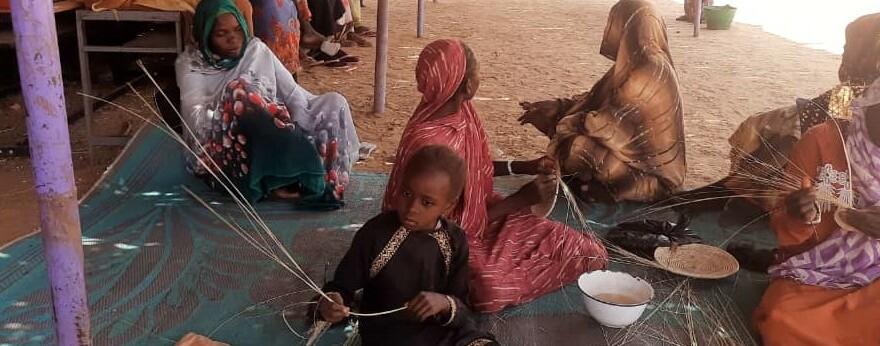Numerous families displaced by the conflict between the army and the Rapid Support Forces in Nyala, South Darfur, are expressing dissatisfaction with their living conditions in El-Fasher, North Darfur.
Zahra Ibrahim, 23, who fled from the Al Nahda neighbourhood in Nyala, voiced concerns during interviews conducted by Radio Tamazuj at Salam 7 School shelter on Saturday.
“Living conditions are extremely difficult at the centre, especially during Ramadan, due to shortages of food, basic necessities, and water. Our children lack many essentials, such as clothes and education,” Zahra lamented.
She highlighted that displaced families haven’t received Ramadan food packages, and many women are resorting to crafting “Brateel,” though market prices for these traditional Sudanese items are low compared to materials like “saaf” (fronds) and “lon” (colours) in El-Fashir.
In the same vein, Ubada Mohamed, a woman in her twenties, echoed similar grievances, stating, “After fleeing Nyala, we’re now grappling with worsening living conditions at Salam (7) School. Some of us are battling illnesses, but our financial situations prevent us from seeking treatment. Additionally, we haven’t received any aid for Ramadan.”
Meanwhile, Sheikh Adam Abdullah, the centre’s chief, urgently appealed for assistance for the displaced at Salam (7) Center. He emphasised the critical need for water services, Ramadan food packages, and other essential support during the holy month.
Nivasha camp currently accommodates at least 26 temporary sheltering houses, housing people from various states in Darfur. Among them are individuals who fled their homes due to conflicts and raids in Abuja camps for displaced people.
Sudan was plunged into chaos last April when clashes erupted between Sudan’s army and the paramilitary Rapid Support Forces (RSF) amid tensions over a plan for transition to civilian rule.
The war has left 25 million people – more than half of Sudan’s population – in need.




